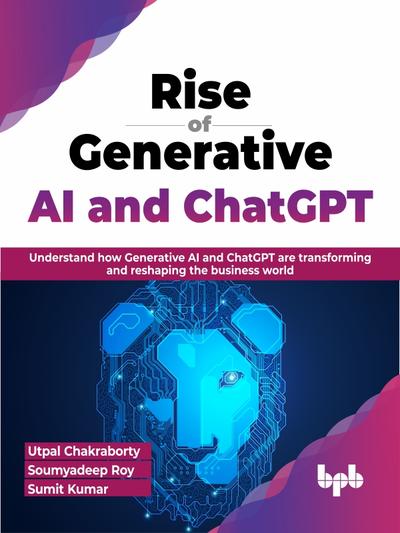
## The Rise of Generative AI: ChatGPT and Beyond## The Rise of Generative AI: ChatGPT and Beyond The advent of Generative Artificial Intelligence (AI) has revolutionized the realm of computing, empowering machines with the ability to create original content from scratch. Among the most prevalent and widely used generative AI models is ChatGPT, developed by OpenAI. This article delves into the transformative impact of ChatGPT and the broader implications of generative AI for various industries and society as a whole. ### ChatGPT: A Conversational Powerhouse ChatGPT is a language-based generative AI model that excels at generating human-like text, engaging in conversational interactions, and providing informative responses. Its capabilities extend to a vast spectrum of language-related tasks, including: – Automated text generation – Language translation – Q&A and customer service – Essay writing and storytelling – Scriptwriting and creative writing ChatGPT’s proficiency in natural language processing allows it to understand and respond to user queries in a comprehensive and engaging manner. It has sparked a surge of interest in generative AI, leading to its widespread adoption across various sectors. ### Beyond ChatGPT: A Universe of Generative AI While ChatGPT has undoubtedly garnered significant attention, it is merely one manifestation of the broader generative AI landscape. Other notable models include: – DALL-E 2 (OpenAI): Generates realistic images from text descriptions. – Stable Diffusion (Stability AI): Similar to DALL-E 2, but open-source and freely available. – Jasper (Jasper AI): Copywriting and marketing assistant that uses generative AI to automate content creation. – Canva (Canva AI): Platform for graphic design and video editing, leveraging generative AI for image and video generation. These diverse models demonstrate the versatility and wide-ranging applications of generative AI, extending its impact far beyond the realm of text generation. ### Impact on Industries The rise of generative AI is set to have a profound impact on numerous industries: – Media and Journalism: Automation of news writing, article summaries, and content generation. – Marketing and Advertising: Creation of personalized and targeted content, generation of ad copy and slogans. – Education: Development of interactive learning materials, automated essay grading, and personalized education plans. – Healthcare: Assistance in medical diagnosis, drug discovery, and personalized patient care. – Customer Support: Automated chatbots, providing 24/7 assistance and resolving customer inquiries. ### Ethical and Social Considerations As generative AI continues to evolve, it is crucial to address ethical and social concerns: – Bias Mitigation: Ensuring that models are trained on diverse and unbiased datasets to prevent perpetuating existing biases. – Fake News and Misinformation: Preventing the spread of false information by verifying the authenticity of generated content. – Job Displacement: Mitigating potential job losses caused by automation of certain tasks through retraining and upskilling programs. – Privacy Concerns: Ensuring the responsible use of personal data and preventing the proliferation of deepfakes. ### Conclusion The rise of generative AI, epitomized by ChatGPT and its contemporaries, is poised to reshape the landscape of computing and society. From automating repetitive tasks to revolutionizing creative endeavors, generative AI offers unprecedented opportunities. However, it is imperative to navigate these transformative technologies responsibly, addressing ethical concerns and ensuring their equitable distribution. As generative AI continues to evolve, the future holds endless possibilities for innovation and progress.
Posted inNews